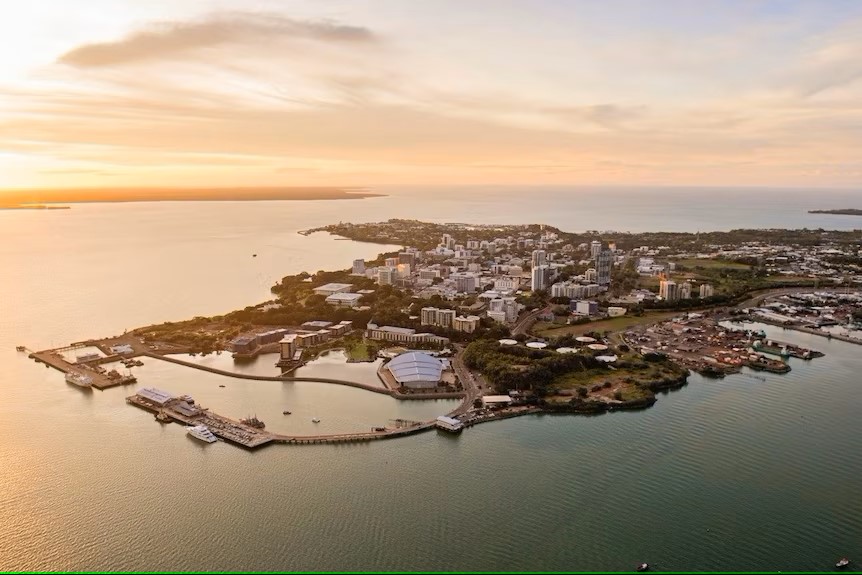NTCOSS Acting CEO and policy manager Sarah Holder spoke to ABC TV News about soaring costs for the social services sector and no funding to match it..
Australia’s last free family planning centre will start charging clients fees to deal with soaring operational costs, as other frontline social services look to reduce hours and sell assets to keep their doors open for vulnerable clients.
- NT government funding for social services isn’t keeping pace with inflation
- The only non-government NT family planning centre is introducing an appointment fee to minimise losses
- To avoid charging fees, one sexual assault support service is selling its company car
For the first time since the specialist sexual and reproductive health service opened 50 years ago, the Family Planning and Welfare Association of the Northern Territory (FPWNT) will begin charging clients a gap for their appointments from May.
Last financial year the service ran at a loss of tens of thousands of dollars.
FPWNT chief executive Robyn Wardle said the cost of rent, utilities, wages and goods like swabs and hand sanitiser had inflated operating costs by an average of 5 to 6 per cent since then.
But she said NT government funding hadn’t kept pace with the rising costs, following only a 1.08 per cent Consumer Price Index (CPI) increase this year.
That isn’t enough, she said, to save the service from a “high risk of financial insecurity”.
“All people deserve a bit better. Sexual reproductive health is a vital service for the community,” Ms Wardle said.
“[The NT government] know the amount of work we do, and I think it should be funded better.
“If CPI over the last four or five years had been adequate, we probably wouldn’t be having this bottleneck issue now of high-risk financial insecurity.”
The Darwin-based service provides the majority of medical abortions in the NT.
The NT government recently approved an additional $27,500 for the service annually, which will allow bulk billing to continue for abortion appointments.
FPWNT will also continue bulk billing for people aged under 18, and in some discretionary cases.
The board is still deciding how much patients will be charged for all other appointments, including contraception, STI and gynaecological services.
‘Too many people relying on us’
Meanwhile, the Northern Territory’s only free post-trauma sexual assault counselling and support service, Ruby Gaea, is selling its company car and has started closing for one day a fortnight so it can avoid billing clients.
“Once we start charging, they’re not going to want to come,” Ruby Gaea coordinator Samantha Chung said.
“It’s another obstacle to seek help for something so traumatic.”
The cost of running the service, where Ms Wardle sits on the board, has increased by 6 per cent in the past year.
Ms Chung said Ruby Gaea had begun reaching into its reserves to keep the lights on, as it waits to see whether its funding is renewed for another five years in the May Northern Territory budget.
“Sexual assault is right up. And between Ruby Gaea and [the government run Sexual Assault Referral Centre], that’s it,” Ms Chung said.
“That’s all that people have to go to for specialist sexual assault.
“We have too many clients to close, and we have too many people relying on us for our service to close.
“So we reduced one day fortnight to save wages, so that should let us remain continue opening for a while.”
Funding not matching rising costs
Sector wide, social services, including frontline domestic violence and homelessness services, have been hit hard by inflation.
As funding increases fall short of inflation, services are being cut in real terms, according to the Northern Territory Council of Social Service (NTCOSS).
NTCOSS acting chief executive Sarah Holder said frontline services were being forced to consider “really alarming decisions” to downsize.
“Given that these are organisations that are on the frontline and are assisting people experiencing that kind of acute vulnerability in need, it is really concerning for us,” she said.
“We would be extremely disappointed if the government is unable to appropriately respond to at least enable our sector to maintain coverage at current levels of service delivery.”
A recently announced carve up of GST means the Northern Territory will receive a $255 million increase to its coffers next financial year.
Ms Holder said NTCOSS was in discussions with the NT government about how that money could be used to keep frontline services operating.
In a statement, Northern Territory Chief Minister Natasha Fyles said FPWNT and Ruby Gaea were “vital”, “important”, and “needed”, but she would not commit to funding either service to meet their operational costs.
She said the NT government would continue to look at how it could support community organisations in the lead up to the May budget.
